Ethiopia
Civil Space Spending in Africa (USD), 2021
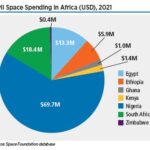
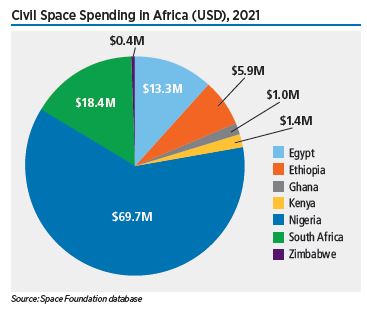
Although the continent’s total space spending is a small fraction of global spending, Africa is quickly becoming a space powerhouse. The African Union’s Agenda 2063 includes the Africa Outer Space Strategy as one of 15 flagship projects “to [accelerate] Africa’s economic growth and development.”
Government Space Spending Increases 19% from 2020 to 2021

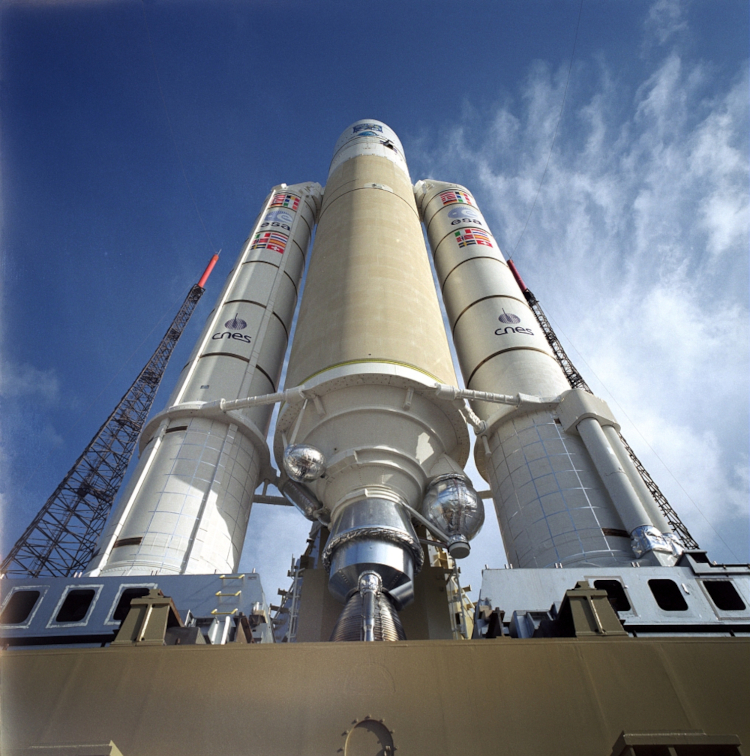
Total government space spending in 2021 reached $107 billion, a 19% increase from 2020, based on Space Foundation analysis. Space Foundation examined government space spending of 46 nations, including 14 nations new to the analysis this year.
2021 TSR – Space Symposium Special Edition: Global Space Economy Climbs Despite Pandemic, Disrupted Government Spending
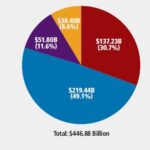
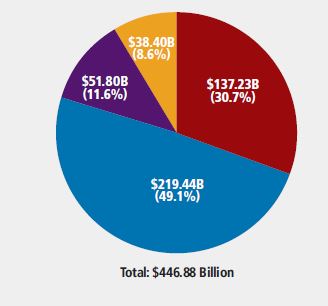
The global space economy reached a new high of nearly $447 billion in 2020, an increase of 4.4% from a revised 2019 figure of $428 billion. The 2020 figure is 50% greater than a decade ago, and 176% greater than . . .
2020 TSRQ1 – Economy: New Nations in Space


Since 2012, there has been a significant uptick in the number of developing nations entering the space community annually. From 1957 until 2011, the average number of countries entering orbital space per year was two. Between 2012 and 2019, the average number of countries entering space annually increased to four.
Coordinating Peacekeeping Through Space
As of the end of 2010, 13 U.N. peacekeeping missions around the world use systems that integrate location information with satellite imagery, referred to as geographic information systems (GIS), as part of daily operations.
2005 – Data Communications
Data communications services include very small aperture terminal (VSAT) services, Internet backhaul, direct-to-home broadband, and mobile data.